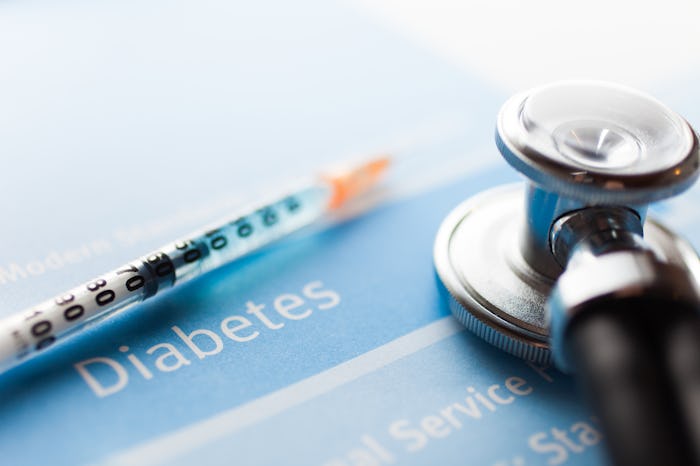Life

How Do They Test For Gestational Diabetes?
When you're expecting, chances are you just want your baby to be healthy. But it's important to look after your own health as well, because pregnancy can take a serious toll on your body. If diabetes runs in your family, for instance, then you may be at an increased risk of developing gestational diabetes. But how do they test for gestational diabetes, and what else should you know about the condition?
First, it's helpful to understand how gestational diabetes may affect you. According to the American Diabetes Association (ADA), gestational diabetes is a condition that affects pregnant women who have exceptionally high blood glucose levels during pregnancy. It is important to note that women who develop the condition do not necessarily have diabetes prior to pregnancy, and it often goes away as soon as you deliver your baby, as further explained by the ADA. The exact causes of gestational diabetes are still being studied, but your likelihood of developing the condition can be easily tested by your doctor.
For the majority of pregnant women, a glucose screening and tolerance test can be performed around weeks 24 to 28 of your pregnancy, as explained by the U.S. National Library of Medicine (NLM). In some instances, women who have a high risk for the condition — such as women who have a family history of diabetes — may have their test performed earlier in the pregnancy, according to WebMD. The initial test is simple enough: you drink a liquid that has glucose contents, hang out for about an hour, and then have your blood drawn to test your blood glucose level, as further outlined by the NLM. And as noted by the Mayo Clinic, if your blood sugar level is lower than 130 milligrams per deciliter, then this is considered in the normal range. But even if your initial results are higher than this threshold, it only means you will be asked to take a follow-up test. And as further explained by the Mayo Clinic, this second test involves an overnight fast, another round of the glucose drink (this time with an even higher concentration of glucose), and several tests of your blood sugar levels in the following hours. This more rigorous test will help your doctor determine whether you need to be diagnosed with gestational diabetes.
Although the prospect of gestational diabetes may sound alarming, it's important to bear in mind that this testing is routine, and somewhere between 2 to 5 percent of expectant mothers develop the condition, according to Baby Center. It is definitely not uncommon. In addition, the condition can be managed with help from your doctor (and possibly a diabetes specialist), as further explained in Baby Center. Just remember: you're definitely not alone, and the condition is very manageable for most moms. You and your medical team can work together to make sure both you and your baby get through the rest of your pregnancy safe and sound.
This article was originally published on